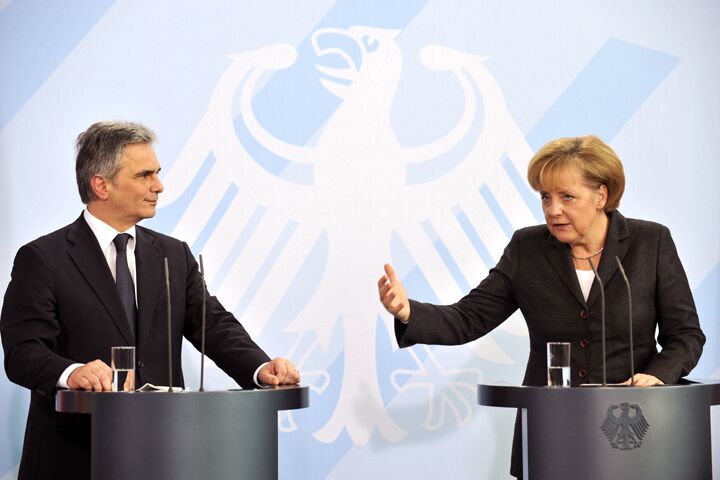
Eastern Europe on the Brink
The economies of Eastern Europe are in dire trouble. They have borrowed $1.7 trillion from abroad, most in the form of short-term debt. Four-hundred billion dollars—around one third of the region’s total gross domestic product—must be paid back or rolled over this year.
Without help, this is simply impossible.
It gets worse. Almost all of this money is owed to Western Europe, meaning this situation could further destabilize Western European economies and likely spark another major financial blaze in what is already a catastrophic global financial firestorm.
It would be foolish to underestimate the significance of this crisis.
Notice what Ambrose Evans-Pritchard wrote in the Daily Telegraph February 15: “Whether it takes months, or just weeks, the world is going to discover that Europe’s financial system is sunk, and that there is no EU Federal Reserve yet ready to act as a lender of last resort or to flood the markets with emergency stimulus.”
Take Austria, for example. It has lent €230 billion to the region—an amount equivalent to 70 percent of its gdp. “A failure rate of 10 percent would lead to the collapse of the Austrian financial sector,” reported Der Standard in Vienna. The European Bank for Reconstruction and Development (ebrd) says that the bad debts will amount to at least 10 percent, if not 20 percent. Austria, among other Western European states, is in big trouble.
This will be a catastrophe for Europe. Evans-Pritchard wrote:
… Europeans account for an astonishing 74 percent of the entire $4.9 trillion portfolio of loans to emerging markets.
They are five times more exposed to this latest bust than American or Japanese banks, and they are 50 percent more leveraged (imf data). Spain is up to its neck in Latin America, which has belatedly joined the slump (Mexico’s car output fell 51 percent in January, and Brazil lost 650,000 jobs in one month). Britain and Switzerland are up to their necks in Asia. … Erik Berglof, ebrd’s chief economist, told me the region may need €400 billion in help to cover loans and prop up the credit system. … The sums needed are beyond the limits of the imf [International Monetary Fund], which has already bailed out Hungary, Ukraine, Latvia, Belarus, Iceland and Pakistan—and Turkey next—and is fast exhausting its own $200 billion (€155 billion) reserve. We are nearing the point where the imf may have to print money for the world, using arcane powers to issue Special Drawing Rights. Its $16 billion rescue of Ukraine has unraveled. The country—facing a 12 percent contraction in gdp after the collapse of steel prices—is hurtling towards default, leaving Unicredit, Raffeisen and ing in the lurch. Pakistan wants another $7.6 billion. Latvia’s central bank governor has declared his economy “clinically dead” after it shrank 10.5 percent in the fourth quarter. Protesters have smashed the treasury and stormed parliament.
The only institution that may be able to help is the European Union. Several nations have proposed bailouts, but they have come up against the same hurdle: Germany. Increasingly, the EU is looking to Germany as the only nation that could save these countries. “We’re nearing the level where things could get out of hand,” said Hans Redeker, currency chief strategist at bnp Paribas. “Investors are beginning to ask whether Germany is going to have to pay for the rescue of Eastern and Central Europe.”
Watch Berlin!
To be sure, Germany’s economy is not the picture of health. But as the single largest economy in Europe, and in better health relative to other European states, Germany may hold the key to saving Europe. While Germany thus far has been reluctant to bail anyone out, it appears that—cognizant that it too will suffer if Eastern Europe collapses—its resistance to calls for assistance appears to be softening.
For more information on how Germany might use this financial chaos for its own advantage, read our article “Did the Holy Roman Empire Plan the Greek Crisis?”
